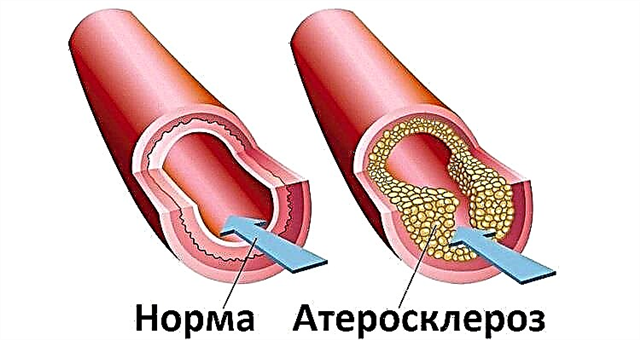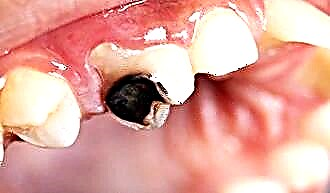The term dyshormonal cardiomyopathy (DCM) refers to the presence of a non-inflammatory lesion in the heart due to endocrine disorders in the body. This leads to changes in the metabolism in the myocardium, deterioration of its mechanical and electrophysiological functions. Women are more susceptible to this disease, and only sometimes men suffer from DCM.
Etiology of pathology
Dyshormonal cardiomyopathy appears due to disturbances in the functioning of the endocrine glands that produce biologically active substances (BAP). The latter play a vital role in the body - they regulate metabolism. Therefore, any imbalance in hormone levels leads to organ dysfunction. Involvement of the heart in this process is called myocardial dystrophy.
An imbalance in hormonal levels can develop due to:
- neoplasms in the prostate gland;
- pathologies of the thyroid gland (thyroid gland);
- menopause;
- decreased testosterone production in men over 50;
- pathology of the testicles and ovaries;
- diseases of the adrenal glands.
In addition, in some cases DCM can be diagnosed as an independent disease.
Clinical manifestations
Symptoms of dyshormonal cardiomyopathy can appear gradually or acutely. Subjectively, patients always feel the presence of a serious illness, which does not correspond to reality during examination.
The main symptom of DCM is cardialgia. The pain is localized in the apex of the heart, occurs suddenly, and can last for a long time. Taking painkillers allows you to briefly stop the pain syndrome, with a subsequent return. Patients also note that discomfort intensifies at night, is not associated with physical activity and may appear at rest.
In addition, such patients complain about:
increased sweating;
- shortness of breath;
- frequent surges in blood pressure;
- memory problems;
- dizziness.
With cardiomyopathy of thyrotoxic genesis (it develops with an excess of thyroid hormones), patient complaints will differ. This form of the disease is characterized by:
- tachycardia (high heart rate);
- inability to concentrate;
- insomnia (insomnia);
- headache;
- dry mouth.
When involved in the process of the prostate gland, men will complain of a decrease in potency and libido. Due to hyperplasia of the latter, problems with urination appear, sometimes oliguria (a decrease in the daily volume of urine) can be observed.
DCM diagnostics
It should be noted that the diagnosis "Cardiomyopathy" (ICD code 10 - I42) in most cases is excluded. Considering that DCM in symptoms may resemble angina pectoris or myocardial infarction, it is first necessary to diagnose these particular diseases. The doctor, relying on the complaints, examines the patient, collects anamnesis, and prescribes additional research methods.
Diagnostic algorithm:
general and biochemical blood tests;
- examination of the hormonal panel - depending on the etiological factor of the disease;
- chest x-ray - to determine the size of the heart and the presence of pathology;
- electrocardiogram (ECG). With its help, a decrease in the ST segment and inversion of the T wave is recorded. The study reveals the presence of arrhythmias, extrasystoles and tachycardia of a paroxysmal nature;
- magnetic resonance imaging (MRI) allows you to establish a reliable diagnosis. It is rarely used due to its high cost;
- consultation of an endocrinologist and a gynecologist.
As a result of a comprehensive study, it is possible not only to accurately establish the cause of myocardiostrophy, but also to choose the optimal tactics for its treatment.
Treatment and prognosis
Basically, the treatment of DCM comes down to symptomatic therapy, which involves taking:
- drugs that suppress cardialgia (Verapamil, Anaprilin);
- sedatives;
- vitamin complexes;
- immunostimulants;
- metabolic correctors (Actovegin, Mildronate).
If the above recommendations did not give a positive effect, hormonal treatment should be used. In this case, drugs containing estrogens, gestagens or androgens are prescribed. The use of hormones is called "despair therapy", because even one dose of these substances can lead to disruption in the work of all the endocrine glands of the body.
Therefore, when prescribing hormone therapy for DCM, a number of factors must be taken into account:
- therapy should be carried out in long-term cycles and only under the supervision of a physician;
- the selection of the dose is individual in each case;
- the effectiveness of treatment is judged by the patient's condition, and not based on the results of examinations, which are always somewhat late.
Non-drug therapy includes:
- complete elimination of bad habits;
- playing sports;
- diet food;
- balanced daily routine;
- alternation of work and rest.
Psychological support is another integral component of DCM treatment. The patient should be informed that his condition is not critical and is not life threatening.
Forecast
In most cases, the prognosis for DCM is favorable. The patient needs to be explained that the pain syndrome does not threaten his life and is not associated with cardiac activity. This disease does not require bed rest; on the contrary, you need to lead a normal active lifestyle for a speedy recovery. In most cases, after the endocrine restructuring is over, all negative manifestations are eliminated on their own. If this did not happen, then the correctly selected treatment, prescribed by a competent specialist, will help get rid of annoying symptoms and avoid unpleasant consequences.
Conclusions
DCMP is a violation of cardiac activity resulting from endocrine dysfunction. The disease can occur in the climacteric and premenstrual period, due to thyrotoxicosis, as well as other conditions with hormonal imbalance in the human body. All this leads to the appearance of structural and functional changes in the heart, which will be manifested by the corresponding symptoms. Treatment of this disease is conservative, and is aimed at eliminating the factor leading to dystrophic disorders. To avoid negative consequences, it is necessary to exclude self-medication and consult a doctor at the first symptoms.



